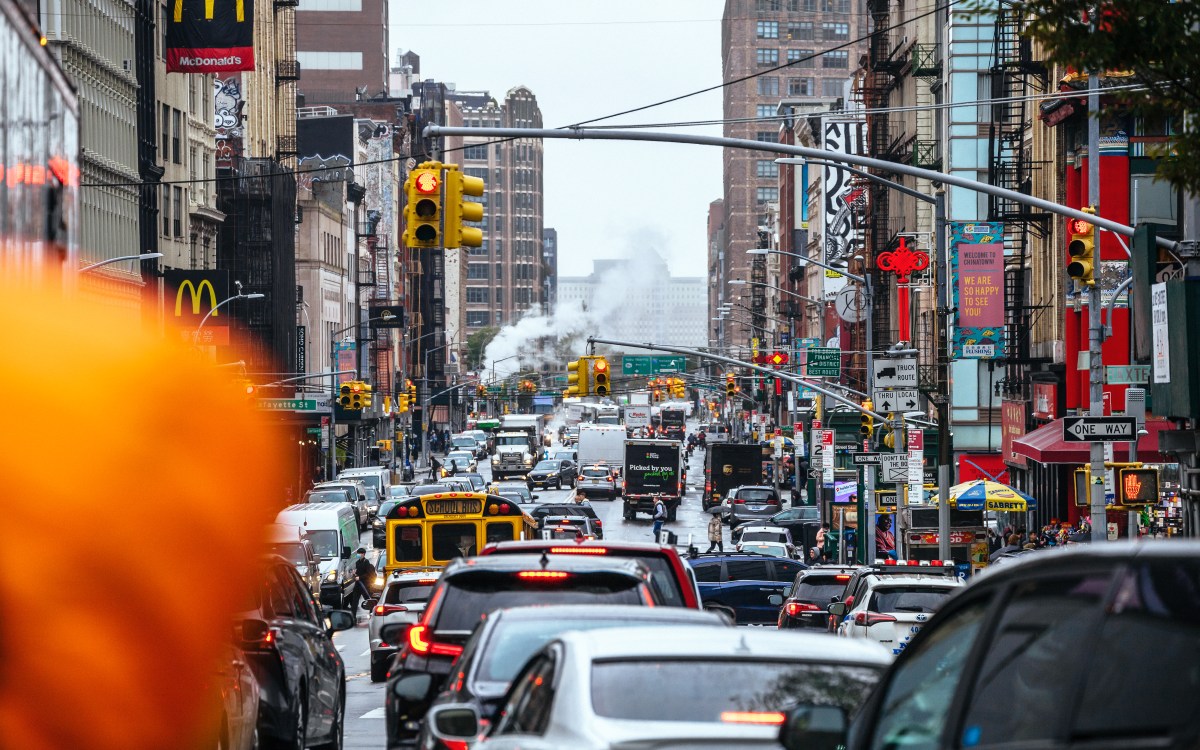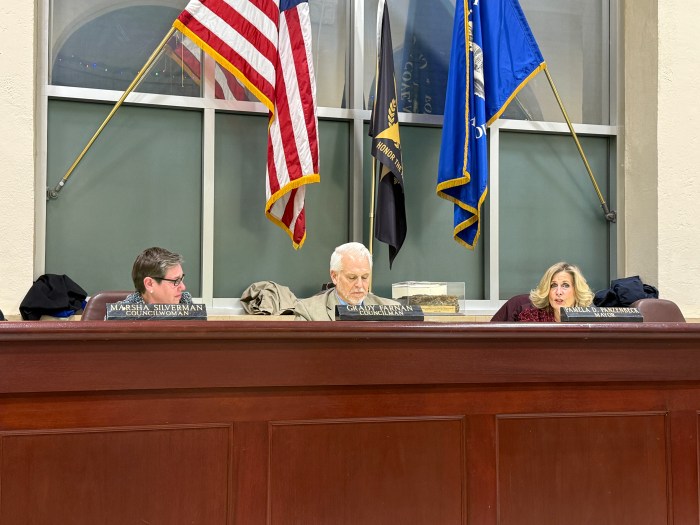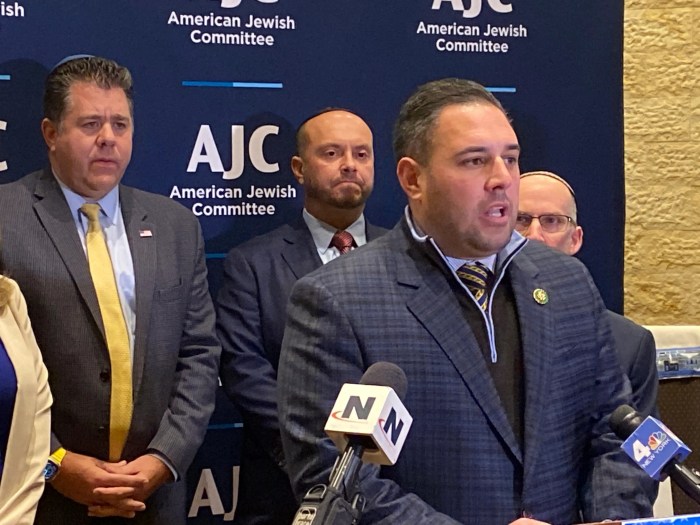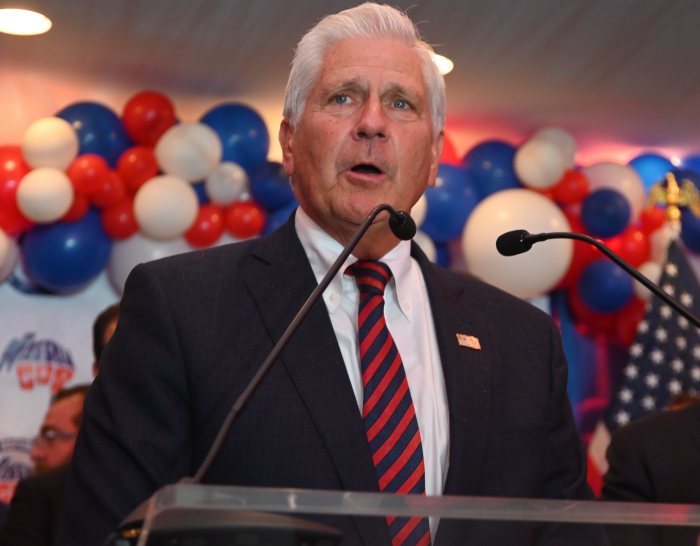The Trump administration moved on Feb. 19 to kill the New York State-run congestion pricing in Manhattan just six weeks into its run, triggering a strong reaction from Long Islanders.
Mass transit advocates panned the move while Nassau County Executive Bruce Blakeman and fellow Republican lawmakers cheered the U.S. Department of Transportation for penning a letter Wednesday to Gov. Kathy Hochul saying it will end congestion pricing, the controversial tolling program that charges vehicles $9 to enter Manhattan below and including 60th Street.
“I’m concerned that if we don’t stop this in lower Manhattan, what’s to stop the governor from putting congestion pricing in on the LIE, or the Southern State, or the Northern State or Sunrise Highway, all state throughways?” Blakeman told reporters during a news conference at his Mineola office.
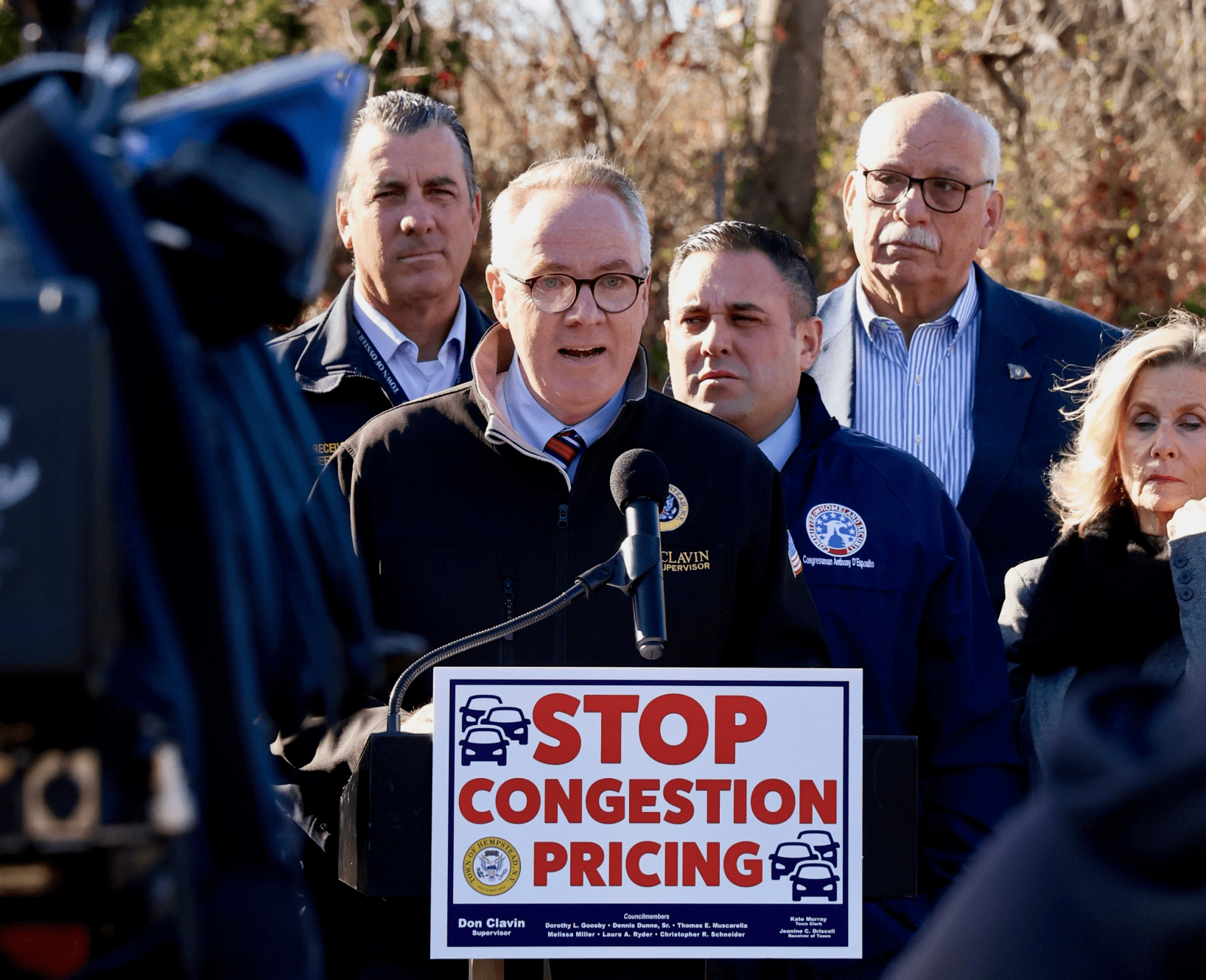
Transportation Secretary Sean Duffy cited several reasons in his letter to the governor for ending the program, alleging it provides no toll-free option for many drivers who want or need to travel by vehicle in the metro area. He also said the toll rate was set primarily to raise revenue for transit, rather than at an amount needed to reduce congestion.
“New York State’s congestion pricing plan is a slap in the face to working-class Americans and small business owners,” said Duffy in a statement. “Commuters using the highway system to enter New York City have already financed the construction and improvement of these highways through the payment of gas taxes and other taxes. But now the toll program leaves drivers without any free highway alternative, and instead, takes more money from working people to pay for a transit system and not highways. It’s backward and unfair.”
Duffy said the feds would work with local agencies to develop a timeline for ending the toll program. Duffy’s statement comes despite the fact that congestion pricing — since it took effect on Jan. 5 after two decades of planning, debate and federal approval during the Biden administration — has helped reduce congestion on Manhattan streets and increase ridership on subways, buses and commuter trains.
MTA chair and CEO Janno Lieber already filed papers in federal court aiming to keep the “highly successful” program active, calling the federal halt a “baseless effort to snatch benefits” such as reduced traffic, faster travel times and increased speeds for buses and emergency vehicles away from New Yorkers.
“It’s mystifying that after four years and 4,000 pages of federally-supervised environmental review – and barely three months after giving final approval to the Congestion Relief Program – USDOT would seek to totally reverse course,” Lieber said.
But it is unknown right now when or if the MTA will stop collecting congestion pricing tolls. Local transit groups, however, are prepared to fight back the Trump administration’s edict in court.
“Public transit riders won congestion relief and are now enjoying faster and more reliable bus service from throughout New York and New Jersey,” said Betsy Plum, executive director of the Riders Alliance. “We organized for a decade, held two governors accountable, and prevailed in court in three states after years of exhaustive environmental studies. We are committed to maintaining and expanding on our victory and will defend it with everything we have.”
It was gaining widespread public support, too, even from skeptics critical of the program at first. It was also approved and passed by the NYS legislature, governor and MTA.
“The program was passed into law through democratically legitimate mechanisms, courts have repeatedly upheld congestion pricing after legal challenges, and they will do so again now,” Sara Linda, co-executive director of Open Plans in NYC, said. “Any attempt by Donald Trump to dismantle it is not only misguided and will prove unpopular but also oversteps his legal authority. We can’t let political gamesmanship stand in the way of cleaner air, less traffic, and better transit options for New Yorkers.”
But congestion pricing was not without its fair share of critics since it was first launched — and well before then.
“Congestion pricing was a narrow-minded solution to a cultural problem of spending and taxing,” said Assemblyman Daniel Norber (R-Great Neck). “Albany bureaucrats have prioritized reckless spending over real solutions. Instead of burdening drivers with higher costs, we should be focusing on fixing our roads, improving public transportation and making New York more affordable for everyone.”
State Assemblyman Ed Ra (R-Franklin Square) echoed the sentiment.
“In its short time in effect, this policy did nothing but drive up costs for small businesses, daily commuters, first responders and even seniors and individuals with disabilities simply trying to get to medical appointments,” he said. “Now, it’s time for an honest conversation about the MTA— not just its funding sources and governance, but its long history of waste, fraud and mismanagement. New Yorkers are fed up with scandals, incessantly increasing costs and an agency that constantly demands more money while failing to fix its problems. The rescission of congestion pricing is a victory for New Yorkers.”
This is a developing story; check back for updates.




